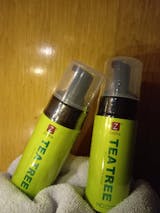Bacteria vs. Acne: The Rise of Phage Skincare
Acne vulgaris is a skin condition that hits millions around the world, regardless of age. It leaves many feeling self-conscious and frustrated with treatment options. Traditional treatments include creams, antibiotics, and retinoids. But these options often fall short, especially with growing resistance and irritation.
Now, a new approach is gaining attention: phage skincare. This method uses viruses called bacteriophages to target and destroy acne-causing bacteria. It offers hope for those tired of endless creams or antibiotics with bad side effects. The idea is simple—harnessing the power of bacteria-fighting viruses to improve skin health naturally.
This article explores how phage skincare fights acne, why it could change the game, and what you need to know before trying it.
Understanding Acne and Its Microbial Factors
The Microbiology of Acne
Acne starts with bacteria on your skin. The main villain is Propionibacterium acnes—now called Cutibacterium acnes. When these bacteria grow too much, they cause inflammation, pimples, and sometimes cysts.
Your skin has both good and bad bacteria. Keeping a balance is key. When harmful bacteria overgrow, it triggers swelling and redness. That’s why controlling bacterial growth matters for clear skin.
Conventional Acne Treatments and Their Limitations
Most people try antibiotics, benzoyl peroxide, or retinoids. While they can help, they also have issues. Antibiotics can kill not only bad bacteria but good ones too. Over time, bacteria become resistant, making antibiotics less effective.
Skin creams can cause dryness, irritation, or redness. These treatments often don’t address the root problem—they just hide symptoms. That leaves many searching for something better and more sustainable.
The Skin Microbiome and Its Impact on Acne
Your skin isn’t just a surface; it’s home to a vast microbiome. Healthy skin has a diverse mix of bacteria that protect and nurture your skin. In acne-prone skin, this diversity drops, and harmful bacteria take over.
Research shows that a balanced microbiome reduces acne severity. Protecting beneficial bacteria is just as important as fighting off the bad ones. That’s where new treatments aim to be smarter—targeting only problematic bacteria without disturbing the good.
The Rise of Phage Skincare in Acne Treatment
What Are Bacteriophages?
Bacteriophages are viruses that infect bacteria. Think of them as natural bacterial predators. They target specific bacteria, usually without affecting others.
In the case of acne, phages can be designed to attack C. acnes bacteria. This makes them highly precise—unlike antibiotics, which wipe out many bacteria at once. Because of this, phage therapy might be gentler on your skin’s microbiome.
How Phage Therapy Works for Acne
The process involves isolating phages from nature that naturally attack C. acnes. These viruses are then collected, purified, and applied directly to the skin. The phages attach to bacteria, inject their DNA, and kill them.
Research shows that applying phages reduces C. acnes numbers. Clinical trials have demonstrated promising results, with some patients seeing clearer skin after just a few weeks. The targeted attack helps clear acne without harming beneficial bacteria.
Benefits of Phage Skincare Over Traditional Methods
-
Less Antibiotic Resistance: Phages evolve with bacteria, making resistance less likely.
-
Fewer Side Effects: Since they target specific bacteria, they cause less irritation.
-
Protects Microbiome Diversity: Beneficial bacteria stay unharmed.
-
Customizable Treatment: Phages can be tailored to match individual bacterial profiles.
Key Developments and Real-World Applications
Leading Companies and Products in Phage Skincare
Biotech firms are investing heavily in phage research. Some startups develop topical products with anti-C. acnes phages. Although many are still in trials, a few have started to reach consumers.
Future products might be creams, serums, or patches containing these virus therapies, designed specifically for acne-prone skin.
Clinical Trials and Research Findings
Recent studies show that phage-based treatments are safe and effective. In small clinical trials, patients experienced fewer pimples and less inflammation. Many also reported fewer side effects than traditional therapies.
Ongoing research continues to refine these treatments, aiming for longer-lasting results and easy application.
Expert Opinions and Industry Perspectives
Dermatologists see great potential here. One says, “Phage therapy could revolutionize how we treat acne—saving skin from harsh chemicals while targeting the real cause.” Microbiologists agree that bacteria-fighting viruses are a promising frontier for personalized skin care.
Looking ahead, industry leaders believe phage skincare might soon become mainstream, especially as new research confirms its benefits.
Challenges and Considerations
Regulatory and Manufacturing Hurdles
Getting phage products approved isn’t simple. Regulations differ by country, and creating stable, pure phage formulations can be tough. Manufacturers need strict quality control to ensure safety and efficacy.
Patient Acceptance and Education
People often think viruses are dangerous, which can cause hesitation. Proper education is critical to clarify that these are safe, controlled therapies. Proper supervision from dermatologists is essential for the best results.
Limitations and Ongoing Research
Bacteria can develop resistance to phages over time, just as they do with antibiotics. That’s why ongoing research is key. Personalizing treatments based on individual microbiomes will likely become part of future therapies.
Actionable Tips for Acne Sufferers Interested in Phage Skincare
-
Talk to a dermatologist about emerging treatments like phage therapy.
-
Keep an eye out for clinical trials or new product launches.
-
Maintain a gentle, balanced skincare routine to support your microbiome.
-
Consider combining traditional treatments with new options under professional guidance.
Conclusion
Phage skincare has huge potential to change how we fight acne. It offers targeted solution that can kill harmful bacteria while protecting the good ones. This minimizes resistance, reduces irritation, and keeps your skin’s natural balance.
As research advances, we’ll see more personalized, effective treatments that address root causes. Bacteria-fighting viruses could become key allies in your journey to clearer skin. The future of acne treatment looks brighter—more natural, precise, and smarter than ever.
References
-
Recent clinical trials on phage therapy for acne.
-
Dermatology research journals discussing microbiome health.
-
Industry reports on biotechnological advances in phage-based skincare.










